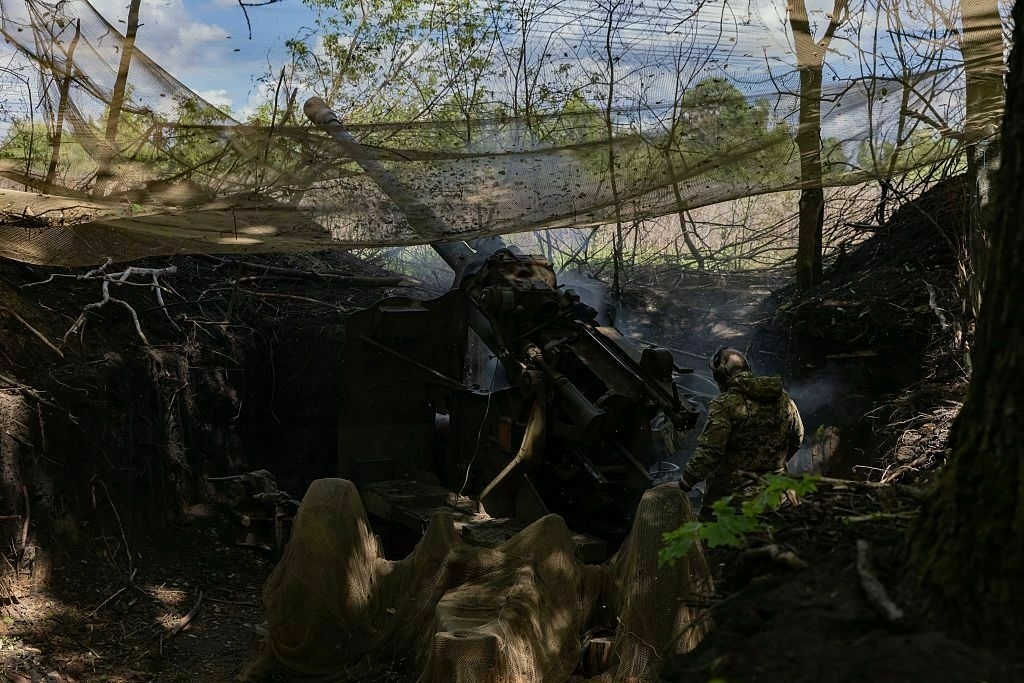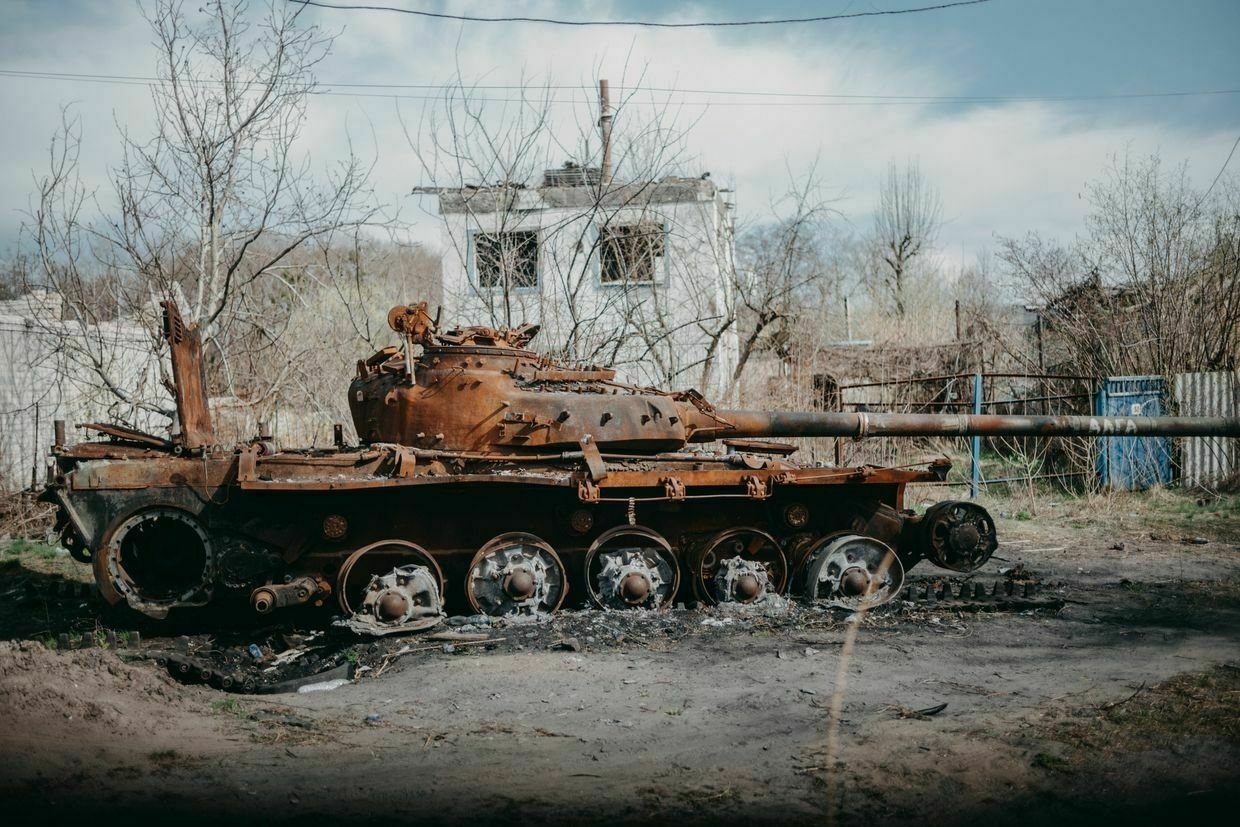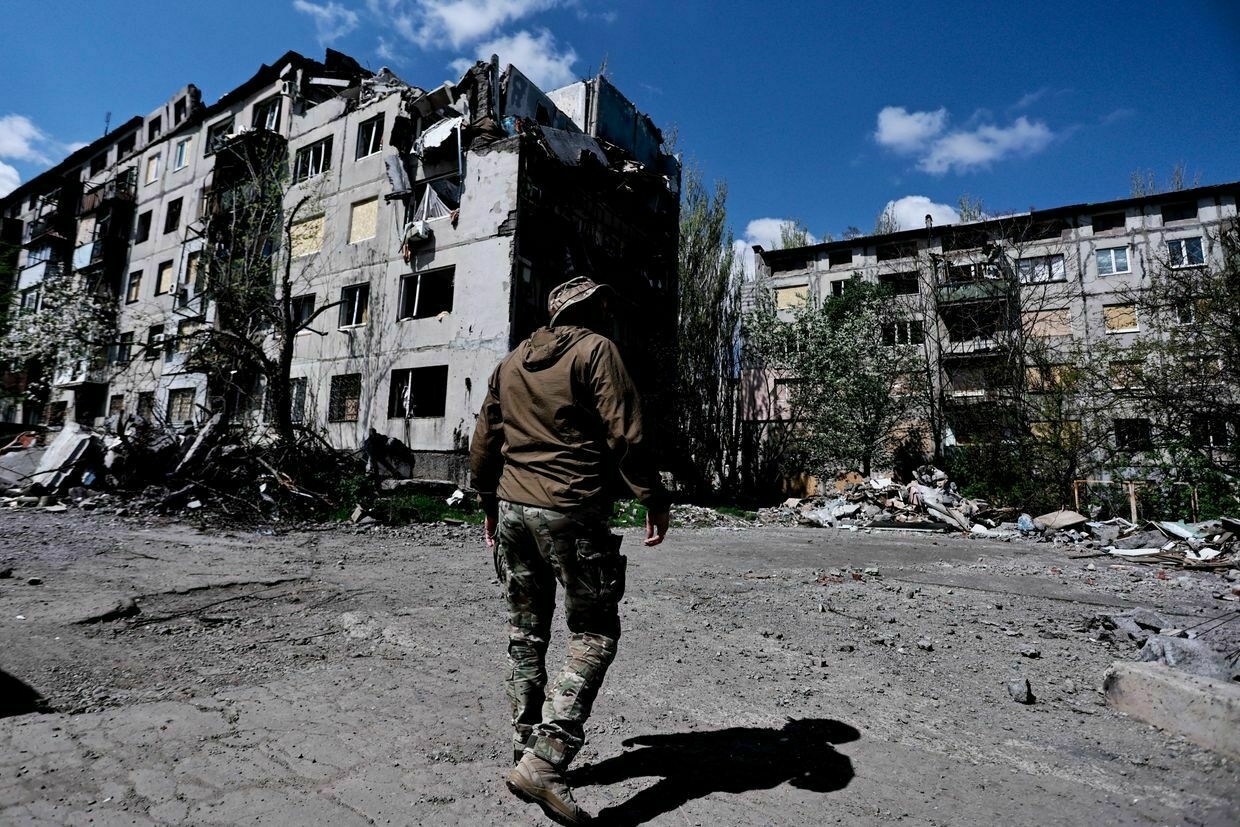
Russia’s military advantage against Ukraine is declining, the Washington Post (WP) reported on May 24, citing U.S., European, and Ukrainian officials and military experts.
While Russia’s military difficulties could be an opportunity for Ukraine’s allies to mount pressure against Moscow in hopes of securing a ceasefire, U.S. President Donald Trump has backed away from international sanctions efforts and appears increasingly unwilling to challenge Russian President Vladimir Putin.
Moscow faces critical shortages of weapons and manpower, making the time ripe for escalated pressure, multiple officials told the WP, many speaking on the condition of anonymity.
“Russia is very gradually taking bits of territory still, but at an unsustainably high cost,” said Richard Barrons, the former head of the United Kingdom’s Joint Forces Command.
A Ukrainian security official told the WP that Russia was not able to gain ground despite its significant personnel advantages and that the slowed advance may be partly a result of Ukraine’s incursion in Kursk Oblast, which aimed to divert Russia’s military resources from the front lines.
“Russia is not able to take any ground, and this is the situation pretty much since the end of the Ukrainian counteroffensive,” the official said, referring to Ukraine’s attempt to retake Russian-occupied territories in 2023.
“Despite the fact that they still have three-to-one superiority in number of troops — and maybe even bigger in terms of (weapons) systems — it’s still not enough."
Western experts also calculate that Russia’s arsenal of tanks is likely to run out in the next few months, the WP reported.
“The Russians can continue fighting, but … the force will become more and more de-mechanized over time, and that does put a timeline on how long they can sustain the current way they operate,” Jack Watling, a senior research fellow for land warfare at the Royal United Services Institute in London, told the WP.
 The Kyiv IndependentChris York
The Kyiv IndependentChris York
Barrons also said Russia was running out of opportunities to conduct major offensives in Ukraine.
“It is very unlikely now that the Russian military have the equipment, the people, and the training and logistics to mount an offensive that would break the Ukrainian line and — even if they did — to exploit it immediately,” he said.
In light of these obstacles, coordinated pressure against Russia could be more effective now than any point since the eary days of the full-scale war, officials said.
According to a May report from the U.S. Defense Intelligence Agency (DIA), Putin still remains confident in Russia’s ability to secure “ultimate victory” in Ukraine, including the full occupation of four Ukrainian regions.
This confidence is reflected in Russia’s strategy of dragging out peace talks while escalating deadly attacks against Ukraine. Trump even admitted, just days after holding a two-hour phone conversation with the Russian leader, that Putin is not interested in peace because he believes he is winning the war.
“Putin believes that time is on his side, and Ukraine is bleeding faster than Russia,” a senior European official told the WP.
But some officials suggested that Putin may be basing his confidence on reports from subordinates that understate Russia’s increasing difficulties.
“I think they overestimate the current success of Russia,” one senior European official said.
President Volodymyr Zelensky called Putin’s continued delays in the peace process “a mockery of the whole world” in remarks on May 23.
“And it’s definitely time to put more pressure on Russia,” he said.
 The Kyiv IndependentAsami Terajima
The Kyiv IndependentAsami Terajima
